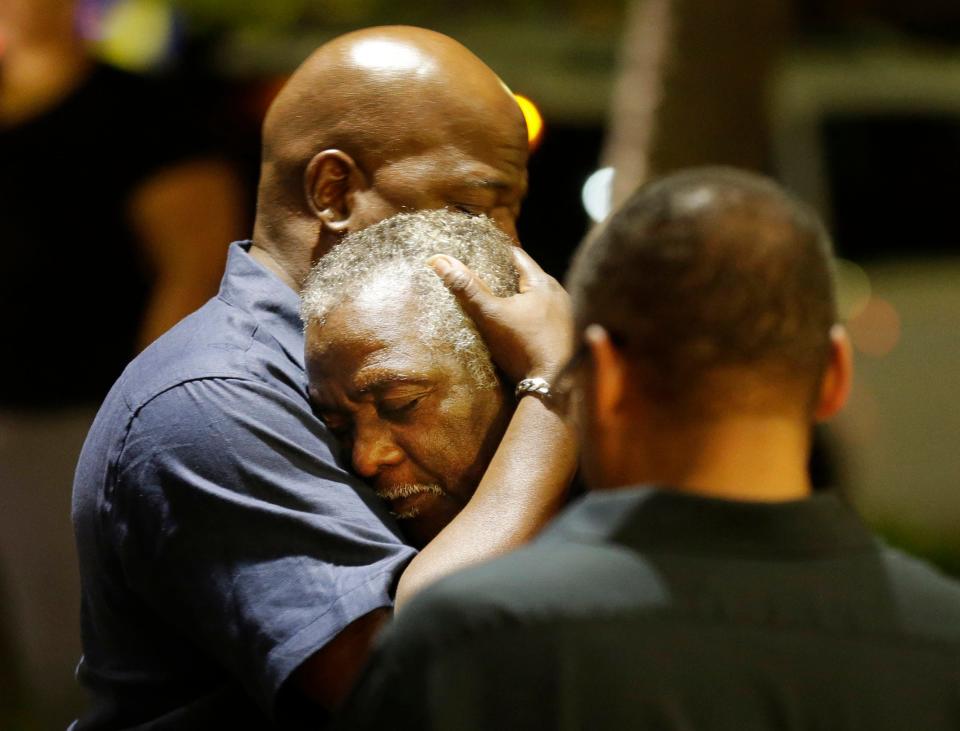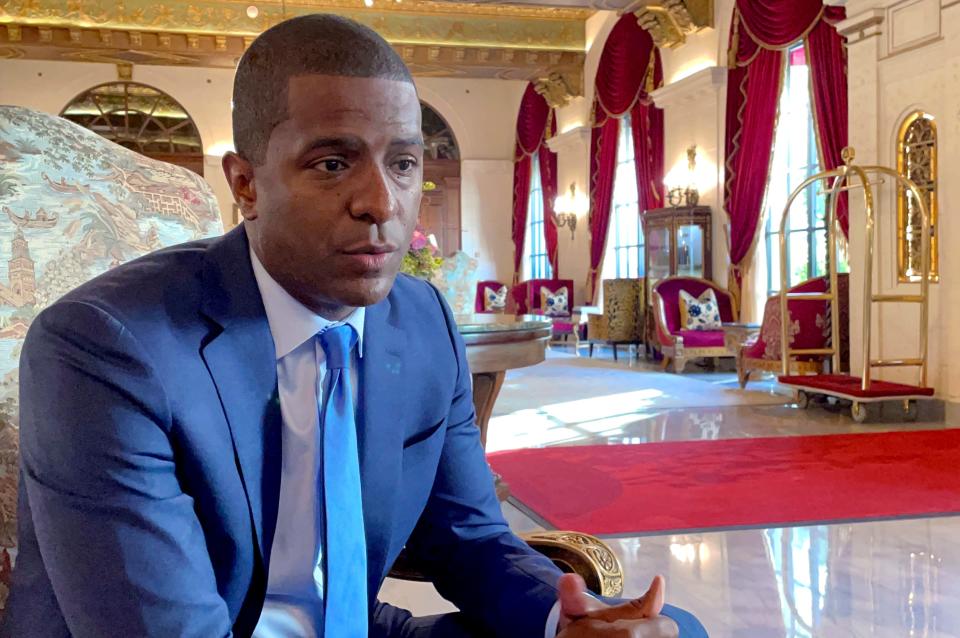Charleston church shooting victims, DOJ reach $88M settlement over white nationalist's gun
WASHINGTON – The Justice Department announced an $88 million settlement Thursday with victims' families and survivors of a 2015 church shooting in which an avowed white nationalist killed nine people during an evening service at the iconic Black church in Charleston, South Carolina.
The 14 plaintiffs filed civil cases against the FBI over accusations the agency was negligent in failing to prohibit the sale of the firearm Dylan Roof used in the massacre inside Mother Emanuel AME Church.
The settlements range from $6 million to $7.5 million for people who were killed, and $5 million for survivors, according to the Justice Department.
“The mass shooting at Mother Emanuel AME Church was a horrific hate crime that caused immeasurable suffering for the families of the victims and the survivors,” Attorney General Merrick Garland said in a statement. “Since the day of the shooting, the Justice Department has sought to bring justice to the community, first by a successful hate crime prosecution and today by settling civil claims.”

After meeting with Garland, victims' relatives told reporters outside the Justice Department that they welcomed the settlement.
Rev. Anthony Thompson, who lost his wife, Myra, in the attack, lauded federal authorities for reaching an amicable agreement.
“In spite of losing my wife, this brought the state together, it brought a church together, it brought a nation together,” Thompson said.
More: 5 years after Charleston was rocked by the Mother Emanuel church shooting, the pain lingers
Jennifer Pinckney, widow of Rev. Clementa Pinckney, who also died in the shooting, said no amount of money could adequately fill the family's void. Pinckney was the church pastor and a South Carolina state senator at the time of the shooting.
“He was an excellent father to our daughters,” Pinckney said, motioning to her two girls. “He was an excellent husband. We have to continue on.”
For Jennifer Pinckney that also means living with the memory of the horrific assault that she survived.
“I’ll remember it to the day I die,” she said.
Since the attack six years ago, Eliana Pinckney, one of the pastor's daughters, said she has devoted her life to "uplifting" her father's legacy.
"No amount of compensation will ever replace my father's life," she said.

Dylann Roof was convicted and sentenced to death for killing nine congregants during a Bible study program June 17, 2015.
The families of the nine people who were killed, as well as the five survivors who were inside the church at the time of the shooting, sued the government. The plaintiffs asserted that the FBI’s National Instant Criminal Background Checks System failed to discover that the shooter was a person prohibited by federal law from possessing a firearm, which allowed him to buy the handgun used in the crime.
Since the shooting, the FBI has worked to strengthen and improve the background check process, according to a Justice Department statement, adding that the department and FBI are working to combat gun violence as part of the department’s violent crime reduction strategy.
Bakari Sellers, one of the attorneys representing the families, called attention to the significance of the $88 million settlement amount. He described it as one of the largest civil rights agreements of its kind that likely will have some meaning to the white supremacist movement, which which uses 88 as a numerical code to acknowledge Adolf Hitler.
Sellers said the settlement represents "big FU to white supremacists in this country."
This article originally appeared on USA TODAY: Charleston church shooting families reach $88M settlement with DOJ

 Yahoo Movies
Yahoo Movies 
